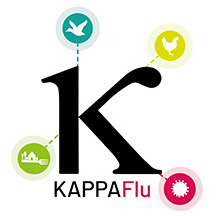CONSORTIUM MEMBERS
Friedrich-Loeffler-Institut (FLI), GERMANY

The Friedrich-Loeffler-Institut (FLI) is a federal research institute and independent higher federal authority under the Federal Ministry for Food, Agriculture and Consumer Protection. At present, the Friedrich-Loeffler-Institut has approximately 900 employees in eleven specialist institutes at five locations. The work of the FLI focuses on farm animal health and welfare and on the protection of humans from zoonoses. The FLI operates high-containment laboratories and animal facilities licensed to handle animal pathogens and GMOs up to risk group 4, including HPAI viruses. The FLI is the German National Reference Laboratory (NRL) for all notifiable animal diseases, including HPAI viruses, and it is also a WOAH reference laboratory for HPAI viruses and a FAO reference center for animal influenza viruses. The FLI is involved in numerous projects about HPAI viruses. Previous and ongoing work at the FLI includes e.g. in-vivo characterisation of
emerging HPAI viruses (IVPI and IMPI), deep sequencing and phylogenetic analysis of isolates, generation of recombinant viruses for subsequent characterisation, development, and improvement of diagnostic tools.
Department of Viroscience of the Erasmus University Medical Center (ERASMUS MC), NETHERLANDS
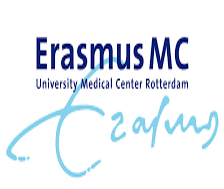
The Department of Viroscience of the Erasmus University Medical Center (ERASMUS MC), situated in Rotterdam, the Netherlands, is an international centre of excellence for multidisciplinary, basic, translational, and clinical research of viruses and virus infections at the molecular, patient and population level. Erasmus MC houses state-of-the-art diagnostic and research laboratories including a large Biosafety-level 3 facility for conducting all virology experiments, pathological investigations, and animal studies. ERASMUS MC has extensive experience with influenza virus research, including animal experiments, pathology/pathogenesis studies, epidemiological investigations molecular and cell biology and reverse genetics. ERASMUS MC houses the Dutch National Influenza Center and is involved in numerous influenza virus projects in cooperation with EU partners and partners from the USA. ERASMUS MC has monitored HPAI in living wild birds for more than 20 years and coordinates mortality monitoring for the Dutch Ministry of Agriculture. Strong connections are established with relevant stakeholders involved in the Multi-Actor Panel.
Linnaeus University (LNU), SWEDEN
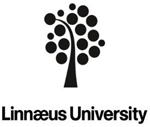
Although Sweden’s youngest university, Linnaeus University (LNU) is founded upon a long tradition of high-quality teaching and advanced scientific accomplishment. As a merger of Växjö University and the University College of Kalmar, LNU opened its doors on 1 January 2010. With 35,000 students and 2,000 employees, LNU is one of the larger universities in Sweden. The University’s five faculties offer about 150 courses of study and more than 2,500 individual courses in roughly 100 subjects. Research at LNU is multifaceted, and has both depth and breadth, with well-developed collaboration between disciplines as well as surrounding industries, region and society as a whole. The areas of inquiry span over the humanities, social sciences, natural sciences and engineering, with a number of well-established research specialties.
Linnaeus University (LNU) has a well-established research specialty in disease ecology of pathogens in wild birds. This includes the long-term surveillance of AIV in migratory waterfowl, which has provided key insights into the dynamics of the disease in wild bird reservoir. Since its initiation in 2002, the surveillance has provided data on temporal variation of AIV occurrence, subtypic and
genotypic variation at population and individual levels at both temporal and spatial scales. Targeted studies added to investigate the effect of AIV infection on bird immunity, behaviour, and infection. The work also includes the perspective of the host movements, and how avian hosts can contribute to the spread of AIV during seasonal migration.
Istituto Zooprofilattico Sperimentale delle Venezie (IZSVE), ITALY
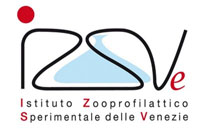
The Istituto Zooprofilattico Sperimentale delle Venezie (IZSVe) is a veterinary public health institute which conducts laboratory tests and research activities in three main areas: animal health and welfare, food safety and environmental protection. The IZSVe hosts several national and international laboratories and centres, such as the WOAH/National Reference Laboratory for Newcastle Disease and Avian Influenza, the FAO Reference Centre for Animal Influenza and Newcastle Disease, the FAO Reference Centre for Zoonotic coronaviruses, and the WOAH Collaborating Centre for Diseases at the Human Animal Interface. Since 2019 the IZSVe has also taken over the role of European Union Reference Laboratory (EURL) for Avian Influenza and Newcastle Disease. IZSVe possesses BSL2 and BSL3 animal facilities and laboratories for the diagnosis and handling of HPAI viruses and other risk group 3 pathogens. IZSVe has been involved in several research projects investigating HPAI viruses and the dynamics of emergence and evolution of respiratory viruses in poultry and wildlife. Previous and ongoing work at IZSVe includes e.g., phylogeography and molecular epidemiology for HPAI, pathogenesis studies of AI in Galliform species, pathological investigation of HPAI outbreaks, generation of organoids and their use for virus phenotyping assays and development of diagnostic tests.
Swiss Federal Institute for Forest, Snow and Landscape Research (WSL), SWITZERLAND (associated partner)
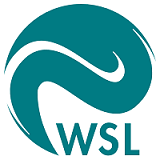
The Swiss Federal Institute for Forest, Snow and Landscape Research WSL conducts solution-oriented research on forests, landscapes, biodiversity, natural hazards, and snow and ice in a changing world. As a federal research institute and part of the ETH Domain, it is committed to excellence in research and implementation. The interdisciplinary focus areas are geared towards socially relevant and scientifically promising issues. With them, WSL is making a substantial contribution to overcoming global challenges. Its four development priorities build on this expertise in terrestrial environmental research:
- Consequences of global change: mitigation and adaptation
- Sustainable urbanization for liveable cities
- Environmental governance
- Multifunctional landscapes and ecosystems
Animal and Plant Health Agency (DEFRA-APHA), UNITED KINGDOM (associated partner)
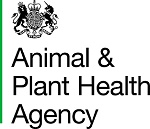
The Animal and Plant Health Agency (DEFRA-APHA) is a recognised international centre of veterinary science and knowledge providing impartial, high quality scientific expertise and policy development. DEFRA-APHA is the UK NRL for avian influenza, swine influenza and Newcastle disease, as well as being the WOAH/FAO/OFFLU International Reference Laboratory (IRL) for the same diseases. Through these responsibilities DEFRA-APHA aligns with global disease strategies (WHO, WOAH and FAO) working in partnership with national and international institutes. DEFRA-APHA also runs biocontainment laboratories and animal housing facilities for handling HPAI viruses (ACDP3, SAPO4) that have capacity for scalability in experimental design. DEFRA-APHA also has a range of core facilities including histopathology, electron microscopy, sequencing (Illumina and Oxford Nanopore) and scientific computing (Amazon Web Service). These facilities are supported by scientists with a wealth of expertise within the field of veterinary virology. DEFRA-APHA is involved in several projects regarding influenza research, diagnostic and surveillance
programs. Ongoing work at DEFRA-APHA includes: development of models for in vivo and ex vivo characterisation of avian influenza viruses; phylogenetic analysis of new and emerging avian influenza viruses; development of diagnostic assays; and investigation of avian influenza outbreaks.
Royal Veterinary College (RVC), UNITED KINGDOM (associated partner)
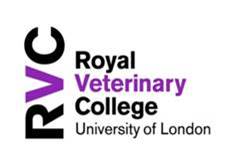
The Royal Veterinary College (RVC) is one of the world’s leading specialist veterinary and biological science research institutions, it is ranked as the top veterinary school in the world in the QS World University Ranking. The RVC has well-established international research programs on animal virology, veterinary public health, and economics of animal health. In the 2021 Research Excellence Framework evaluation, 88% of RVC research was rated as world-leading (4*) or internationally excellent (3*); and with 7.5 of the 9 impact case studies submitted found to have “outstanding reach and significance”. RVC have been part of the NIAID/NIH CEIRS and CEIRR network together with ERASMUS MC for over 13 years and have set up active surveillance and analysed the ecology and evolution of both LPAI and HPAI in living wild birds, including in collaboration with partners in the Republic of Georgia, funded by NIAID/NIH, US DTRA and EFSA. This work incorporates many aspects of key host-pathogen interfaces including emergence evolution in multi-host systems, in-silico identification of putative molecular markers of adaption, host population immunity and quantification of virus evolution using antigenic cartography relative to vaccine. RVC is currently an FAO reference centre in Veterinary Epidemiology and, together with DEFRA-APHA, WOAH collaborating centre for Risk Analysis and Modelling. The institution current leads major multi-disciplinary poultry disease projects, such as the UK GCRF One Health Poultry Hub, and has contributed to the development of important decision support tool for the design of cost-effective riskbased surveillance.
Canadian Food Inspection Agency (CFIA), CANADA (collaborating partner)

The National Center for Foreign Animal Disease (NCFAD) in Winnipeg is part of the National Centres for Animal Disease within CFIA Science. The NCFAD is located within the Canadian Science Centre for Human and Animal Health, a secure facility shared with the Public Health Agency of Canada's National Microbiology Laboratory.
NCFAD provides state-of-the-art scientific expertise and technologies for the prevention, detection, control and reporting of foreign animal diseases, zoonotic infections and emerging diseases. The adverse health effects, as well as the high cost of control and eradication, make these diseases serious threats to the health and economic wellbeing of Canadians and their animal resource base. NCFAD operates containment level 2, 3, 3Ag and level 4 laboratories and is designated as a reference laboratory by the World Organization for Animal Health (WOAH), with the following areas of expertise: African swine fever, classical swine fever, highly pathogenic avian influenza and low pathogenic avian influenza (poultry) and foot-and-mouth disease.
As WOAH Reference Laboratories, NCFAD is designated to pursue the scientific and technical problems relating to a specific disease or topic. Its role is to function as a centre of expertise and standardization of diagnostic techniques for the designated diseases. The reference laboratories are also involved in cutting-edge research and training of highly skilled personnel from countries all over the world.
The Food and Agriculture Organization of the United Nations (FAO) recognizes NCFAD as a reference centre, with the following areas of expertise: foot-and-mouth disease and vesicular diseases and zoonotic and emerging pathogens
All CFIA laboratories are accredited in accordance with the International Standard ISO/IEC 17025, General requirements for the competence of testing and calibration laboratories.
School of Public Health, The University of Hong Kong (HKU), HONG KONG (collaborating partner)
The School of Public Health, LKS Faculty of Medicine of the University of Hong Kong has a long and distinguished history in public health education and high-impact research. With world-leading research in infectious diseases as well as on non-communicable diseases of both local and global importance, the School has made significant contributions through its research and advocacy to improve the health of populations and individuals, both locally and globally. The School is a leading research and teaching hub in public health on COVID-19, influenza and other emerging viruses, control of non-communicable and infectious diseases, tobacco control, air pollution, psycho-oncology, behavioural sciences, exercise science, life-course epidemiology, population mental health, and health economics, health services planning and management. This work has informed international (e.g. the U.S. Food and Drug Administration, Health Canada, the World Health Organization), national and local (e.g. HKSAR government) public health policies.
St. Jude Children’s Research Hospital (ST JUDE), UNITED STATES (collaborating partner)
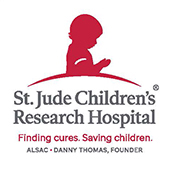
St. Jude Children’s Research Hospital is a private nonprofit research hospital located in Memphis, Tennessee, United States. In addition to providing clinical care focusing on pediatric cancers and other childhood diseases, it is a premier basic science and clinical research center with more than 300 clinical and basic science faculty-level investigators. The influenza program at St Jude resides within the Department of Host-Microbe Interactions and has been designated as a World Health Organization Collaborating Center for Studies on the Ecology of Influenza in Animal and Birds since 1975. Investigators have access to ABSL2 and ABSL3-enhanced facilities and conduct basic research on many aspects of influenza viruses.
The Icelandic Food and Veterinary Authority (MAST), ICELAND (collaborating partner)
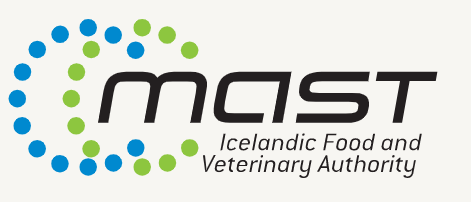
The Icelandic Food and Veterinary Authority (MAST) is responsible for surveillance and control of Avian Influenza in Iceland in animals, particularly in poultry and wild birds, but also in mammals. MAST works in close collaboration with the Icelandic Institute of Experimental Pathology at Keldur laboratory and other national and international institutes and laboratories involved in Avian Influenza. This includes dissemination of data on Avian Influenza to WOAH and to the EU and EFSA. Furthermore, MAST plays an important role in public health control related to Avian Influenza in collaboration with the Chief Epidemiologist at The Directorate of Health of Iceland. Due to the geographical situation in the North Atlantic, MAST recognizes the importance of surveillance of Avian Influenza in Iceland and the importance of international collaboration.
